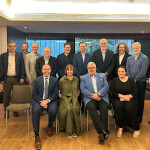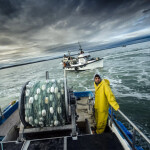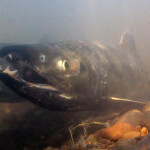Even as they ask for a multi-state task force to handle the Gulf of Mexico oil spill and rotating fishing closures, Louisiana seafood officials last week urged the U.S. Congress to support offshore oil drilling.
Harlon Pearce, chairman of the Louisiana Seafood Promotion and Marketing Board and owner of Harlon’s LA Fish in New Orleans, and Mike Voisin, a Louisiana’s Department of Wildlife and Fisheries commissioner and owner of oyster-processing company Motivatit Seafoods in Houma, La., met with officials from the National Oceanic and Atmospheric Administration, the Department of Commerce, and a House subcommittee in Washington, D.C.
About half of the residents in southern Louisiana communities make their living from seafood, while the other half work in the oil industry, said Voisin. Therefore, the government should not “overreact” and stop all Gulf offshore drilling.
“The seafood and oil industries have co-existed for decades in southern Louisiana,” said Voisin.
Instead, federal and state agencies in Louisiana, Alabama, Mississippi, Texas and Florida should work together to develop specific protocols, he recommended. For example, standard guidelines should be followed when there are precautionary fishing closures due to oil, and when the area is re-opened. If an area of water or beach is closed because of oil intrusion, there also needs to be a protocol for handling the closure, the cleanup of the area and re-opening.
“We want to get an area re-opened quickly. If the area is OK, we need the fishermen back at the dock, so they can bring revenue to the dock, to processors … and build tourism in our area,” said Voisin.
Many in the Louisiana seafood industry have expressed frustration over the precautionary fishing closures, which seem to occur randomly, and then the closed area is opened two days later.
“People understand the purpose for the closures and re-openings,” said Voisin. “Help them understand why their boat is still tied up and when their boat can be untied and go back to work.”
The task force of federal officials — including representatives from NOAA and the Department of Health and Human Services, along with state wildlife and health officials — should be formed so that all agencies are on the same page, said Voisin and Pearce.
“A lot of times, the states can’t explain why federal agencies are suggesting things, and don’t have the time to worry about it,” said Voisin. “We are seeing disagreement about the information.”
All Supply & Trade stories >





